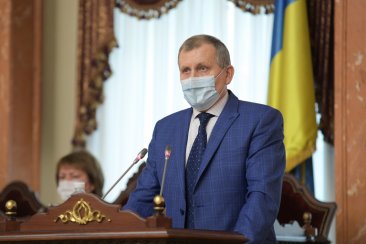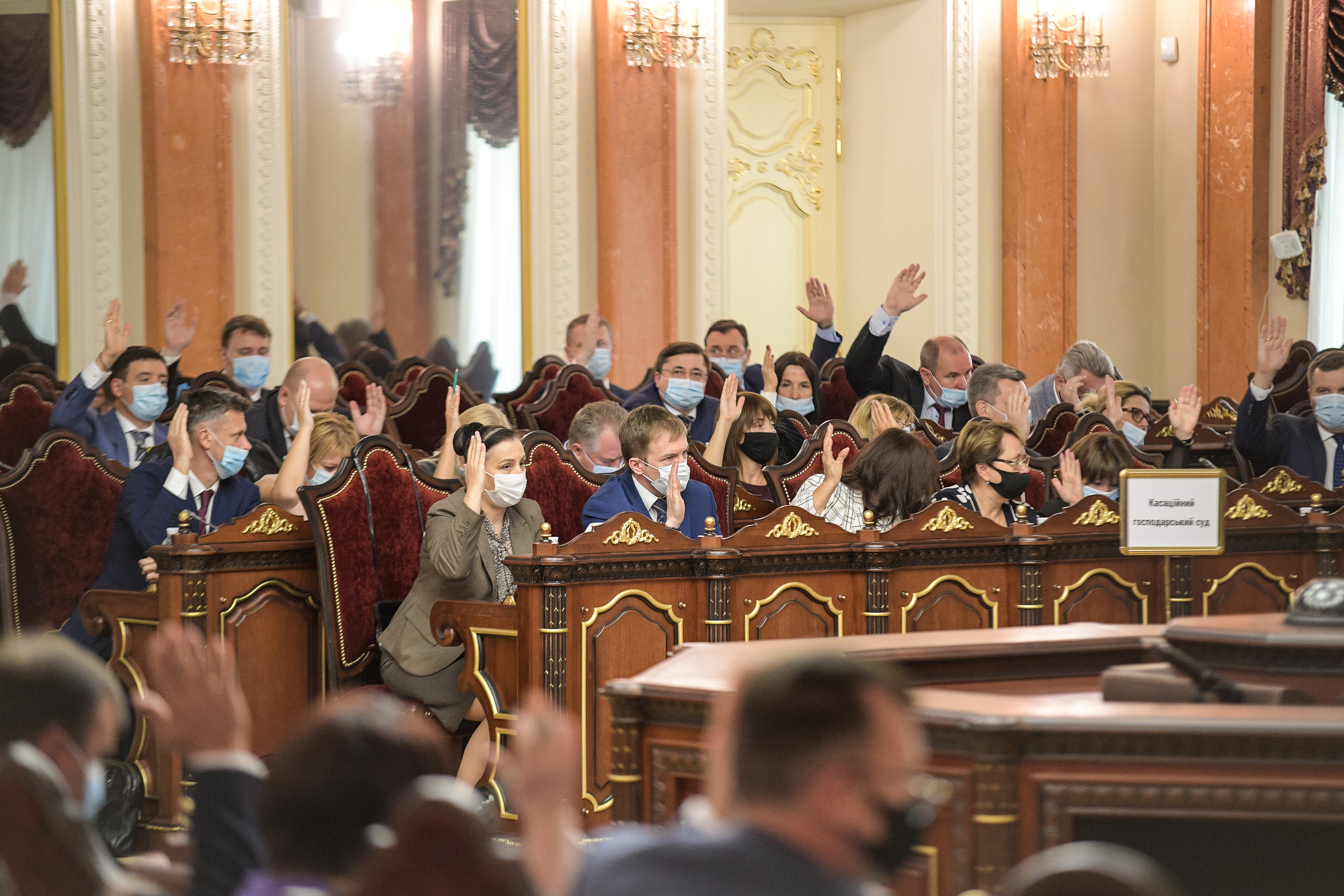Contact center of the Ukrainian Judiciary 044 207-35-46

On 18 September 2020 Plenum of the Supreme Court addressed to the Constitutional Court of Ukraine with a request on the official interpretation of the Fundamental Law of Ukraine (Part 1 of Article 105) regarding the possibility to bring the President of Ukraine to administrative liability for an administrative offence committed by him during the exercise of his powers.
As the spokesperson – judge of the Grand Chamber of the Supreme Court Leonid Loboiko – has noted as for this issue, pursuant to Part 1 of Article 105 of the Constitution of Ukraine, the President of Ukraine shall enjoy the right of immunity for the period of his authority. However, the Fundamental Law of Ukraine does not specify the essence of his inviolability, and it is necessary to explain it for the proper level of legal protection of the President, as well as to clarify, whether he has functional immunity.
According to the judge of the SC Grand Chamber, in 2003 the CCU in its judgment in the case on the immunity and impeachment of the President of Ukraine (No. 19/рп2003) provided official interpretation of this provision, but in “criminal aspect”. Particularly, the CCU concluded following: the right to immunity of the President of Ukraine is an integral component of his constitutional status aimed at ensuring conditions for carrying out the mandate entrusted to him. In the view of contents of the authority of the President of Ukraine, he requires appropriate legal protection. The right of the President of Ukraine to immunity may not be cancelled, suspended or limited by means of instituting a criminal case against him and the prosecution in criminal judicial procedure. Besides, the President of Ukraine, during the period of holding this position, may not be brought to criminal liability; he may be removed from office only on the grounds of the constitutional procedure of impeachment.

Leonid Loboiko has emphasized that the Constitutional Court of Ukraine had not considered the issue of the possibility to bring the President of Ukraine to administrative liability.
The spokesperson has noted that, however, the President of Ukraine was the subject to individual administrative offenses; he was the subject to anti-corruption requirements, prohibitions and restrictions, the violation or non-observance of which represents the grounds for bringing him to administrative liability for offences linked to corruption; therefore, law-enforcement agencies drew up protocols on the commitment of administrative offences by the President of Ukraine and sent them to courts for the consideration.
The SC GC judge has remarked that subjects authorized to impose administrative penalties required clear guidance as for the issue, whether bringing the President of Ukraine to administrative liability impeded carrying out the mandate entrusted to him and whether the level of his legal protection was reduced.
